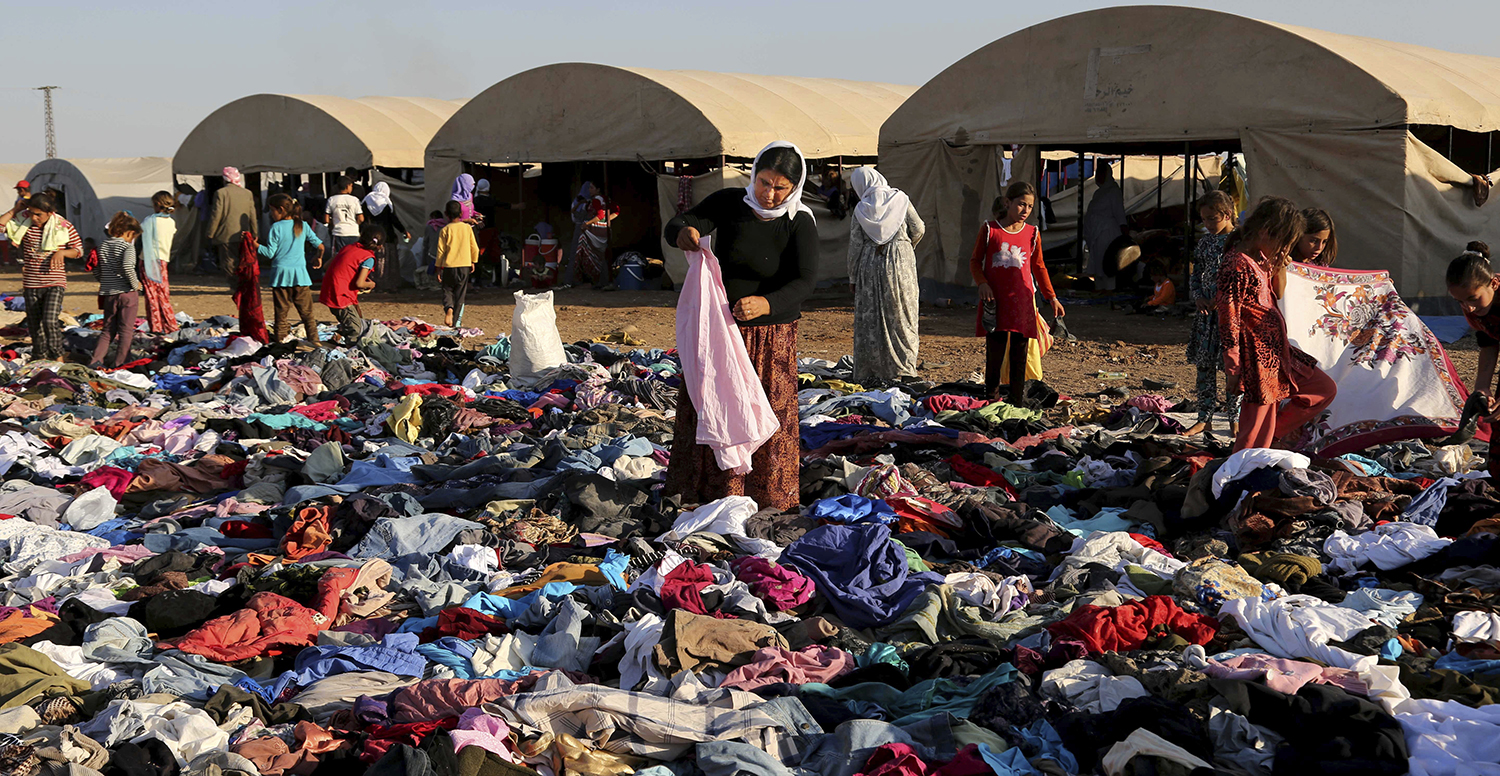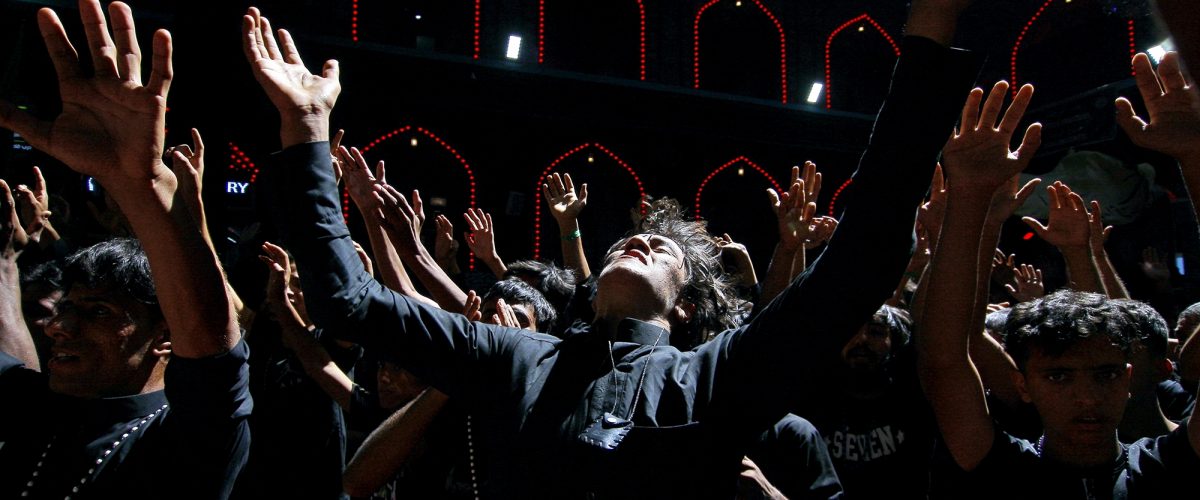A federal agency is urging the United States to be more assertive in pressuring Iraq to improve religious freedom conditions for Christians, Yazidis and other religious minorities.
“Although Iraq’s federal government has made some overtures toward the country’s diverse religious communities, persistent sectarianism and inadequate constitutional and legislative safeguards have contributed to a political and social environment increasingly inhospitable to religious minorities,” the U.S. Commission on International Religious Freedom said in its September report on Iraq.
“The governments’ lack of progress in resolving their competing jurisdictional claims has fueled the rise of militias that exploit and target religious minorities in disputed territories. Consequently, many religious minority groups across Iraq face an existential choice between political and social disenfranchisement within the current system, or reluctant emigration or protracted displacement to avoid harassment and abuse by state-affiliated militias, property misappropriation, and lack of genuine political representation.”
Iraq has embarked on a period of political recalibration since the 2022 establishment of the Iraqi federal government and the semi-autonomous Kurdistan regional government.
As Iraq has embarked on a period of political recalibration since the 2022 establishment of the Iraqi federal government and the semi-autonomous Kurdistan regional government, the challenges of ethnic and religious minorities have been overlooked.
While Iraq’s constitution and legislature were established in the years soon after the U.S.-led invasion, political and social instability defined the nation leading up to the 2022 establishment of the Iraqi federal government, or IFG, and the semi-autonomous Kurdistan regional government, or KRG. But the chaos that contributed to religious freedom violations beforehand have carried into 2023, USCIRF says.
“Further, the two governments’ long-standing jurisdictional disputes over northern territories have exacerbated dangerous conditions for Yazidis, Christians and other vulnerable groups, creating gaps in humanitarian programs and governance filled by militias — both government-affiliated and nonstate — that target religious minorities for exploitation and abuse,” the report says.

Yazidi youth from the Mirzo band perform dressed in their traditional clothes during Mosul Music Heritage Festival in the Old City of Mosul. Mosul Music Heritage Festival is organized by the Goethe-Institut, supported by the German Federal Foreign Office and is carried out in collaboration with the Iraqi Ministry of Culture, the Municipality of Mosul, Mosul Heritage, Book Forum, Volunteer With Us, UNESCO and the EU delegation with the Institut Français d’Iraq and the Spanish Embassy in Iraq as partners. (Photo by Ismael Adnan / SOPA Images/Sipa USA)(Sipa via AP Images)
Contributing to the difficult and sometimes dangerous situations facing religious minorities is an entrenched factionalism between non-Muslim, Sunni and Shi’a Muslim interests within the Iraqi government, according to the report. “While the constitution sets forth general provisions for civil and political rights, it is ambiguous on appropriate limitations of these rights and on mechanisms of enforcement for religious and cultural minorities’ rights in particular.”
Religious leaders are a powerful force in Iraqi politics, often threatening boycotts or mob attacks to shape policy or to prevent change.
“Recent electoral reform proposals may only perpetuate unsatisfactory sectarian power-sharing among the largest political parties from the three most populous religious and ethnic ‘components,’ shutting out independents and politicians representing religious minorities,” the report says. “In July 2023, escalations in conflict between Shi’a and Sunni parties as well as intra-Shi’a rifts upset the precarious religiopolitical balance in Iraq, which could lead to another political crisis.”
The Iraqi government has made some strides toward improving religious freedom for minority groups, including the current administration’s formal recognition of Yazidi property ownership in northern Iraq.
Despite the dysfunction, the Iraqi government has made some strides toward improving religious freedom for minority groups, including the current administration’s formal recognition of Yazidi property ownership in northern Iraq — a first in nearly 50 years. In March, the U.S. State Department affirmed the government’s first reparations to Yazidi genocide survivors, and in July acknowledged UN-recommended draft legislation banning enforced disappearances against theological dissenters and religious minorities, USCIRF reports.
“However, systematic religiously discriminatory laws remain in effect, such as a 1970s-era ban on the Baha’i religion and a law mandating children or minors convert to Islam upon the conversion of one parent. Newly proposed legislation and other formal government initiatives, too, have had disproportionate and negative impact on religious minority communities.”
New measures have been introduced recently that have drawn international objections, including a draft legislation calling for the prosecution and possible imprisonment of anyone who makes public comments offensive to “public morals” or about religious symbols or people, USCIRF said. “The latter provision amplifies the existing threat of political oppression in a country in which religious clerics often play active roles in politics. Religious leaders’ representatives have also questioned the law’s potential to restrict religious street processions and require minority groups to plead their case for public religious observances important to the expression of their faith.”

Displaced Iraqis from the Yazidi community look for clothes to wear among items provided by a charity organization at the Nowruz camp, in Derike, Syria. The Netherlands and Belgium have joined an international investigation into atrocities committed against the Yazidi minority in Syria and Iraq, the European Union’s judicial cooperation agency, Eurojust, announced June 26, 2023. (AP Photo/ Khalid Mohammed, File)
Another draft law being considered targets religious minorities and atheists who post materials considered offensive on the internet.
“Apart from the bills’ facial potential restrictions on freedom of religion or belief, the reintroduction or proposal of these and other potential laws are part of a wider culture of perceived and increasing intolerance to religious minorities,” the report notes. “Christian, Yazidi, and other non-Muslim community members have characterized such legislative campaigns as infringements on both their religious expression and their livelihoods, contributing to long-term insecurity, prompting emigration, and ultimately damaging their communities’ prospects for continued existence in Iraq.”
State-affiliated militia groups who use roadblocks, curfews or violence to exert control over local communities pose another significant threat to religious freedom, USCIRF reported. “In addition to state-affiliated militias, ISIS regularly asserts its presence in parts of Iraq, and in June 2023, the U.S. Department of State named as Specially Designated Global Terrorists ISIS members who perpetrated sexual violence against Yazidi women and girls.”
ISIS activities also devastated Iraq’s Christian population, which has plummeted from 1.5 million to 200,000 largely since the terror group began its campaign of genocide in 2014, USCIRF said. “Like other religious minorities, Christians’ risk of falling victim to mass atrocities has receded since ISIS’s territorial defeat in 2019; however, they suffer numerous forms of harassment and discrimination that Iraq’s government facilitates or tolerates, and which imperil the safety and sustainability of their communities within Iraq.”
USCIRF has recommended that Iraq be included on the U.S. State Department’s Special Watch List, a designation for countries that engage in or tolerate severe violations of religious freedom. The agency also recommended Congress incorporate “religious freedom concerns into its larger oversight of the U.S.-Iraq bilateral relationship through hearings, letters and congressional delegations and by appropriating funding for development programming to strengthen religious freedom.”


